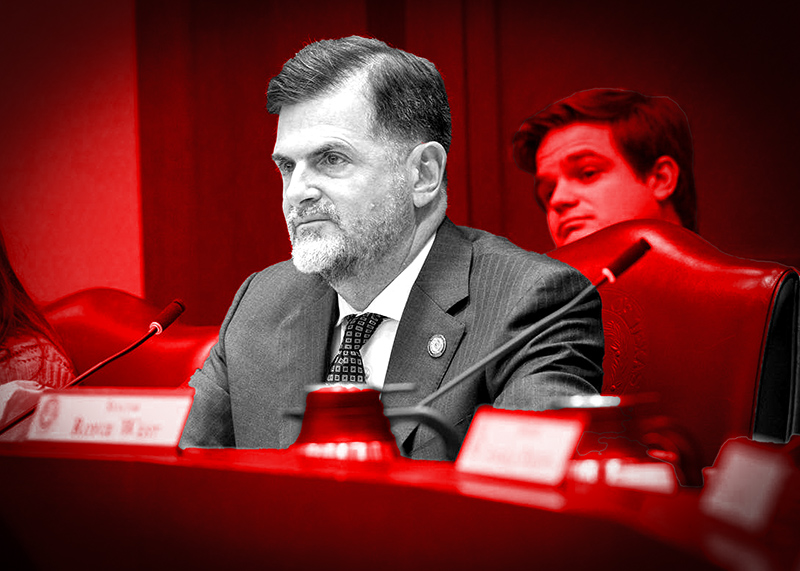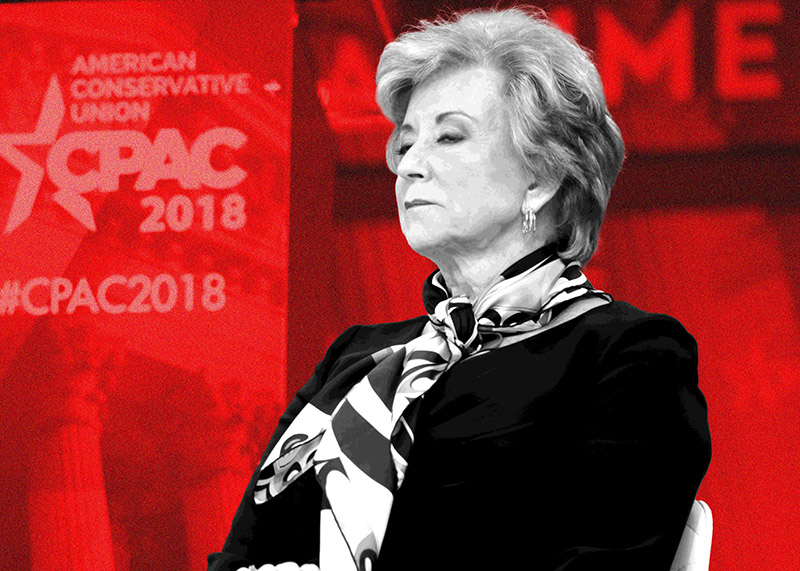Kentucky “Don’t Say Gay” Law Disputed Over A Single Word
Kentucky Republicans are enraged after a word choice in a bill to bar LGBTQ content from classrooms may not be as strictly enforced.

Kentucky officials are now engaged in a back-and-forth war over the exact wording of a law intended to bar LGBTQ-related content from public school classrooms.
Kentucky lawmakers recently overrode the veto of Democratic Gov. Andy Beshear to pass a wide-reaching measure that not only limits the teaching of LGBTQ-related information, but bans gender-affirming medical care for minors, restricts restroom access for transgender students, and allows misgendering of transgender students.
As part of that bill, Republicans had intended to bar teaching human sexuality — regardless of orientation — until sixth grade, and to prohibit any mention of gender identity or sexual orientation in all K-12 classrooms, including in biology, history, and sexual education classes.
But the Kentucky Department of Education has argued, in the guidance provided to school districts, that the law’s exact language offers individual districts the option of deciding between delaying lessons on human sexuality until sixth grade or barring all mentions of LGBTQ-related content.
As justification, the department cites the exact language of the law, which uses the word “or” rather than the word “and,” opening the statute up to interpretation, reports the Associated Press.
In its guidance, the state education department says that the sexual education portion of the law “presents districts with a choice.”
As such, those districts that choose to enact the K-5 ban on human sexuality will be allowed to permit teachers to broach LGBTQ-related topics — as well as information on HIV and other sexually-transmitted diseases — in middle and high school biology and sex education classes.
“Under this scenario, instruction on curriculum for human sexuality or sexually transmitted diseases at the high school level would not be impacted,” the guidance reads.
“The Kentucky General Assembly chose to use the conjunction ‘or,’ not ‘and.’ When it comes to state law, words have meaning and [the Kentucky Department of Education] simply read the words adopted by the General Assembly,” KDE spokesperson Toni Konz Tatman said in a statement.
But the bill’s top sponsor, State Sen. Max Wise (R-Campbellsville), has pushed back against that interpretation, calling it “absurd” and accusing the department of attempting to undermine the intent of the bill’s prohibitions on LGBTQ-related content, which mirror those of other “Don’t Say Gay” measures passed in states like Florida and Iowa.
Wise argues that Republican legislators intended to both delay teaching on human sexuality until sixth grade and bar all LGBTQ content from classrooms, even at the high school level.
“Obviously, the legislature would not pose these two requirements, which protect children and protect parental rights, as a binary choice for school systems to select to enforce,” Wise said in a statement.
Unfortunately for Wise, the 2023 legislative session has already concluded and won’t convene in regular session until early next year — midway through the next school year.
Wise said it is clear what lawmakers intended and pointed to a court ruling stating that “an interpretation [of a statute] which will lead to an absurd result will be avoided” and that “when necessary to carry out the obvious intention of the Legislature, disjunctive words can be construed as conjunctive, and vice versa.”
The sweeping anti-LGBTQ bill passed late in the legislative session and is nearly identical to legislation passed in other states seeking to restrict various forms of LGBTQ visibility and expressions of LGBTQ — especially transgender — identity.
Such legislation has become commonplace as the national GOP has seized on “parental rights” and hostility toward LGBTQ rights as potential wedge issues for upcoming elections.
“We have a phrase — ‘the letter of the law’ — for a reason,” Governor Beshear said at his weekly news conference last Thursday, suggesting that GOP lawmakers may not have done their due diligence and passed the law in a rushed manner. “It’s what’s on paper that they pass. It’s a statute that’s put in the books. And we have to follow that, and not just what’s in somebody’s head or what they meant.”
He added, “My bet is that there is more than just that one mistake in that bill.”
Beshear, who is seeking re-election, faces an uphill battle in the Republican-leaning state.
His general election opponent, Republican Attorney General Daniel Cameron, has employed attacks against both Beshear and Education Commissioner Jason Glass, accusing them of supporting a “gender ideology curriculum” being pushed in classrooms. Cameron’s attacks parrot talking points that Republicans have employed in other states.
As for the law itself, several families of transgender youth have challenged the law’s section banning transgender youth from accessing gender-affirming care.
The other sections of the law, including the “Don’t Say Gay” provisions, have not been challenged as of yet.
Support Metro Weekly’s Journalism
These are challenging times for news organizations. And yet it’s crucial we stay active and provide vital resources and information to both our local readers and the world. So won’t you please take a moment and consider supporting Metro Weekly with a membership? For as little as $5 a month, you can help ensure Metro Weekly magazine and MetroWeekly.com remain free, viable resources as we provide the best, most diverse, culturally-resonant LGBTQ coverage in both the D.C. region and around the world. Memberships come with exclusive perks and discounts, your own personal digital delivery of each week’s magazine (and an archive), access to our Member's Lounge when it launches this fall, and exclusive members-only items like Metro Weekly Membership Mugs and Tote Bags! Check out all our membership levels here and please join us today!




























You must be logged in to post a comment.